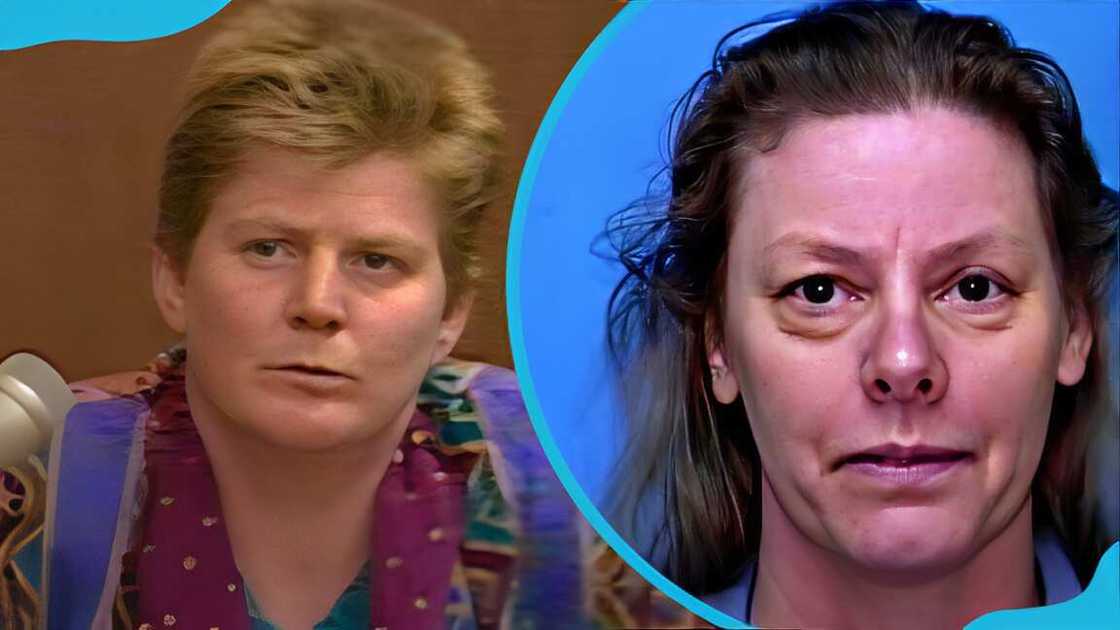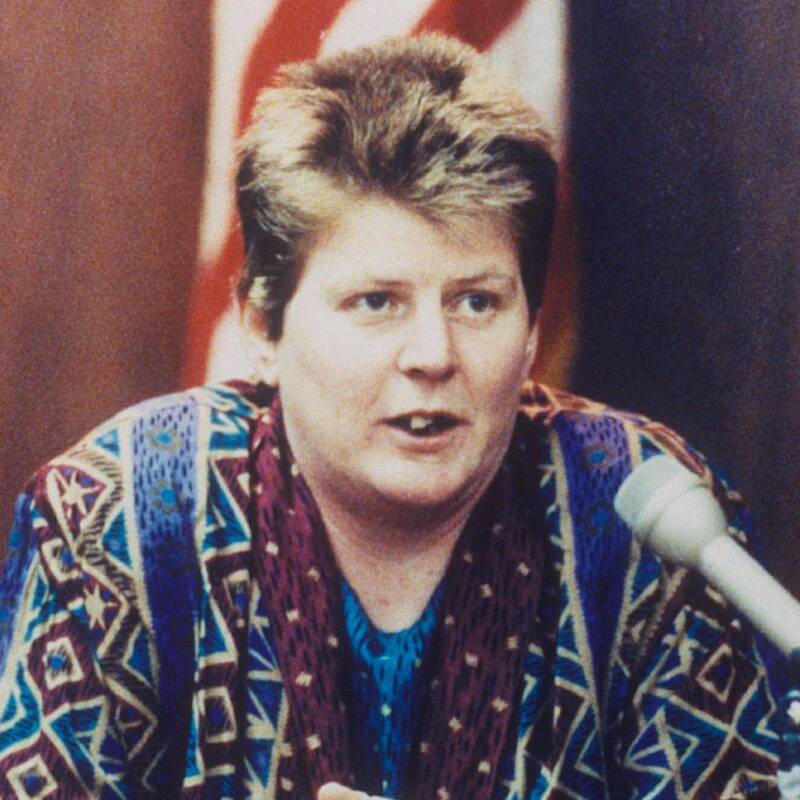When we talk about Aileen Wuornos Tyria Moore, we're diving into one of the darkest yet most captivating chapters in American true crime history. Her story has been romanticized, demonized, and everything in between. But who was she really? Was she a cold-blooded killer or a victim of circumstance? This article dives deep into her life, crimes, and legacy, revealing truths that might surprise you. So buckle up, because this is more than just a story—it's a journey into the mind of a complex woman who became a household name.
Aileen Wuornos Tyria Moore is not just another name in the annals of crime history. Her case sparked nationwide debates about justice, mental health, and the death penalty. Her story has been told and retold, but rarely has it been explored with the depth it deserves. In this article, we'll uncover the real Aileen Wuornos—the woman behind the headlines.
Before we dive deeper, let's set the stage. Aileen's life wasn't just about the crimes she committed. It was a tapestry of abuse, trauma, and survival. Her story isn't black and white—it's messy, complicated, and deeply human. Let's explore her world, her motivations, and the impact she left on society.
Read also:Princess Eugenie Celebrates National Sibling Day With Heartfelt Message For Princess Beatrice
Biography: The Early Life of Aileen Wuornos
Aileen Wuornos was born on February 29, 1956, in Rochester, Michigan. Her early years were far from ideal. Growing up in a broken home, she faced neglect and abuse that would shape her future actions. Her father, Leo Wuornos, was imprisoned for child molestation when Aileen was just a baby, and her mother abandoned her shortly after. Raised by grandparents who struggled with their own demons, Aileen's childhood was anything but stable.
By the time she was a teenager, Aileen had already started running away from home. At 14, she gave birth to a son, whose father was believed to be her first cousin. The child was adopted, and Aileen continued her troubled life, moving from place to place and job to job.
Here's a quick look at her early life:
- Born: February 29, 1956
- Place of Birth: Rochester, Michigan
- Parents: Diane Wuornos and Leo Wuornos
- Early Life: Marked by neglect, abuse, and instability
Aileen Wuornos: The Facts
Let's break down some key facts about Aileen Wuornos:
| Fact | Detail |
|---|---|
| Full Name | Aileen Carol Wuornos |
| Date of Birth | February 29, 1956 |
| Place of Birth | Rochester, Michigan |
| Occupation | Prostitute and serial killer |
| Victims | Seven men between 1989 and 1990 |
| Execution | October 9, 2002, by lethal injection |
The Crimes: Aileen Wuornos Tyria Moore's Dark Path
So, how did Aileen Wuornos go from being a troubled teen to becoming one of America's most infamous serial killers? It all started in the late 1980s when she began working as a prostitute in Florida. During this time, she claimed to have killed seven men in self-defense, but the truth was far more complicated.
Her victims were all male, and most were found with gunshot wounds to the head. The first murder occurred in December 1989, and the killings continued into 1990. Aileen claimed that she acted in self-defense, stating that her victims had tried to rape or harm her. However, investigators found evidence suggesting otherwise.
Read also:Hoda Kotbs Heartwarming Journey Into Motherhood A Second Adoption Story
Breaking Down the Murders
Here's a breakdown of the seven murders attributed to Aileen Wuornos:
- Richard Mallory – December 1, 1989
- Peter Siems – February 1990
- David Spears – May 1990
- Teddy Weiss – July 1990
- Charles Humphrey – August 1990
- Walter Gino Anton – September 1990
- Lawrence Cross – October 1990
Each case had its own chilling details, but the common thread was the brutal nature of the killings. Aileen's defense team argued that she was a victim of circumstance, but the prosecution painted a different picture.
The Trial: Aileen Wuornos Tyria Moore Faces Justice
Aileen Wuornos' trial was a media sensation. The public was fascinated by her story, and the courtroom drama only added to the intrigue. Prosecutors argued that Aileen was a calculating killer, while her defense team portrayed her as a victim of abuse and trauma.
During the trial, Aileen's mental health became a central issue. Psychologists testified that she suffered from severe trauma, PTSD, and possibly schizophrenia. However, the jury ultimately found her guilty of six of the seven murders. In 1992, she was sentenced to death.
The Mental Health Debate
One of the most controversial aspects of Aileen Wuornos' case was the question of her mental health. Was she truly capable of understanding the consequences of her actions? Experts were divided, but the legal system deemed her competent enough to face the death penalty.
Here are some key points about her mental health:
- Diagnosed with PTSD and possible schizophrenia
- History of severe trauma and abuse
- Debated whether she was fit to stand trial
Legacy: The Impact of Aileen Wuornos Tyria Moore
Aileen Wuornos' legacy is a complex one. She became a symbol of both justice and injustice, depending on who you ask. Her story sparked nationwide debates about the death penalty, mental health, and the treatment of women in the criminal justice system.
Since her execution in 2002, Aileen's story has been retold in books, documentaries, and films. The 2003 movie "Monster," starring Charlize Theron, brought her story to a wider audience and earned Theron an Academy Award for her portrayal of Aileen.
Pop Culture Representation
Aileen Wuornos has been depicted in various forms of media, each offering a different perspective on her life and crimes:
- "Monster" (2003) – A critically acclaimed film starring Charlize Theron
- "Aileen Wuornos: The Selling of a Serial Killer" – A documentary exploring the media's role in her story
- "The Legend of Aileen Wuornos" – A book that delves into her life and crimes
Psychological Insights: Understanding Aileen Wuornos Tyria Moore
Psychologists have long debated what drove Aileen Wuornos to commit such heinous acts. Was it trauma, mental illness, or something else entirely? The truth is likely a combination of factors.
Research suggests that childhood trauma can have a profound impact on a person's behavior later in life. Aileen's upbringing, marked by neglect and abuse, likely played a significant role in shaping her worldview and actions.
Key Psychological Factors
Here are some psychological factors that may have contributed to Aileen's behavior:
- Severe childhood trauma
- PTSD and possible schizophrenia
- Survivor guilt and self-defense claims
Social Implications: The Broader Impact
Aileen Wuornos' case had far-reaching implications beyond the courtroom. It highlighted issues such as mental health, gender bias, and the treatment of marginalized individuals in the justice system. Her story forced society to confront uncomfortable truths about how we treat those who are different.
Today, her case continues to be studied by criminologists and psychologists alike, offering valuable insights into the complex nature of crime and punishment.
Lessons Learned
What can we learn from Aileen Wuornos' story? Here are a few key takeaways:
- The importance of addressing mental health in the justice system
- The need for empathy and understanding in dealing with troubled individuals
- The impact of media on public perception of crime
Conclusion: Reflecting on Aileen Wuornos Tyria Moore
Aileen Wuornos Tyria Moore's story is one of tragedy, complexity, and controversy. Her life and crimes have left an indelible mark on American society, sparking debates that continue to this day. As we reflect on her legacy, it's important to remember the broader implications of her case and the lessons we can learn from it.
So, what do you think? Was Aileen Wuornos a cold-blooded killer or a victim of circumstance? Leave your thoughts in the comments below, and don't forget to share this article with your friends and family. Let's keep the conversation going!
Table of Contents
- Biography: The Early Life of Aileen Wuornos
- Aileen Wuornos: The Facts
- The Crimes: Aileen Wuornos Tyria Moore's Dark Path
- Breaking Down the Murders
- The Trial: Aileen Wuornos Tyria Moore Faces Justice
- The Mental Health Debate
- Legacy: The Impact of Aileen Wuornos Tyria Moore
- Pop Culture Representation
- Psychological Insights: Understanding Aileen Wuornos Tyria Moore
- Social Implications: The Broader Impact


